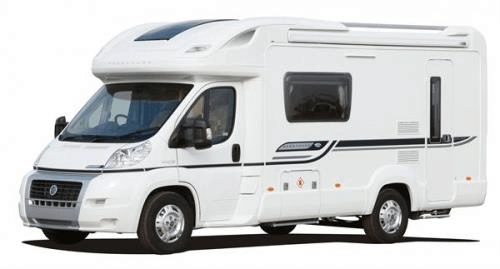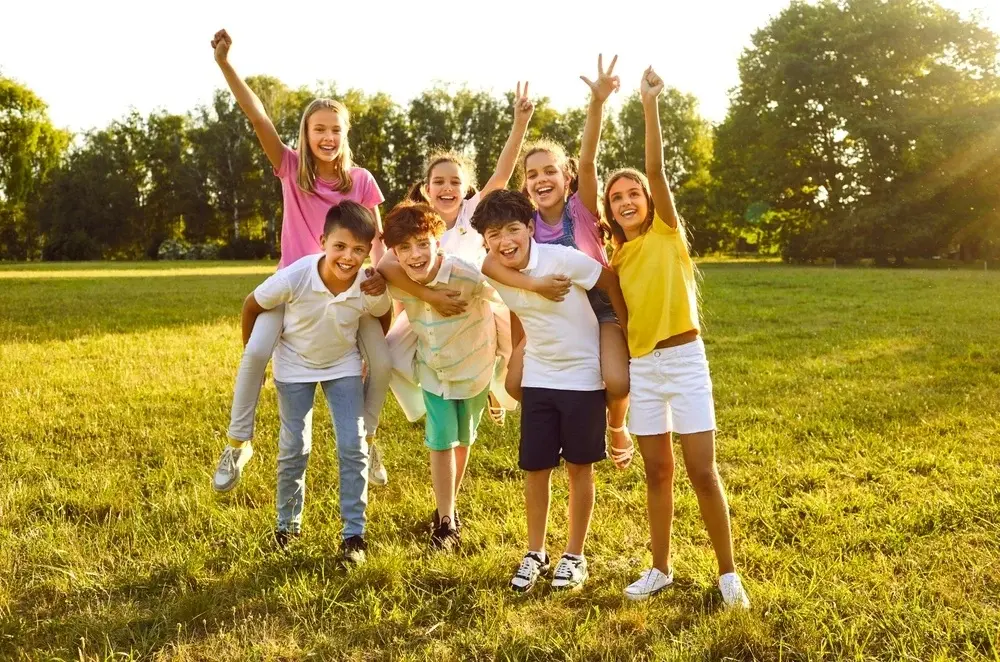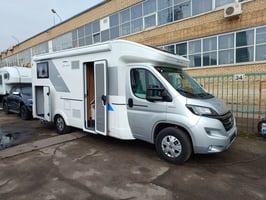If you’ve got a large motorhome and you’re planning a trip around Cornwall, or thinking of heading...
Camping is a fantastic way to introduce kids to the great outdoors, and as parents or carers you can help foster a love for nature - and a spirit of adventure - in your children by heading off in your motorhome for some family fun. However, chances are that many of us have been on campsites where other people’s kids are running amok, and that can spoil things a bit.
For many parents, they do worry about their kids causing a disturbance for other campers. On the flip side though, there are also those who seem to either not see what their kids are doing, and/or who choose to turn a blind eye - which is not great for the rest of us who happen to be on site!

Fortunately, regardless of whether the kids are yours or belong to someone else, there are things you can do to help ensure a pleasant experience for your family and your fellow campers. Here’s some suggestions…
1. Choose the right campsite
In the first place, if you’re taking kids with you, opt for a campsite that is known to be family-friendly. These places are more likely to have other kids onsite, more understanding neighbours, and amenities geared toward young campers. Look for sites that offer plenty of space, which will give your kids room to play without encroaching on other’s spaces.
On the other side of the coin, if you’re child-free and don’t want to be on a campsite where there are lots of children, then make sure you book somewhere suitable before you arrive! Check the reviews of people who have stayed there before, and go off-peak if you can. You could also choose an adult-only campsite, too.
2. Follow the rules
Often, campsites have quiet hours so you’ll need to familiarise yourself with the campsite’s rules, and where possible explain these rules to your kids too. Depending on their ages, take suitable toys and activities that can keep your kids engaged without the need to always be noisy. This is a good time to use ‘inside voices’ even when outside - confusing, maybe, but necessary!
Ensure you have items with you that make your kids feel comfortable and secure, such as their favourite blankets or toys. This can help reduce night-time disturbances - and let’s face it, you’ll be all too familiar with this if you’ve ever forgotten Teddy or Bunny on a trip away before - something you’ll likely never want to repeat!

3. Set clear expectations
Kids need to blow off steam and energy, and it’s good for them to do that. It’s also important to teach them about camping etiquette. Explain the importance of respecting other people’s space and keeping noise levels down, especially early in the morning and late at night. Let them know where within your campsite they can play (for safety and your peace of mind, too), and set clear rules about wandering off or entering other campsites.
Alternatively, if you find that other people’s kids are disturbing you, then it doesn’t hurt to have a friendly word with their adults. And if that doesn’t work, then you could see if it's feasible to move pitches…
4. Respect other people’s property
‘If it doesn’t belong to us, then don’t touch it without asking’ is a good rule to give to the kids, in general. That goes for motorhomes, tents, guy ropes, cooking equipment, random farm animals… you name it.
Make sure they do any running around where they aren’t going to trip over things or cause any damage.
5. Do interact with your neighbours
It’s often a good idea to introduce yourself and your children to your neighbours, as a friendly introduction can go a long way in creating a positive atmosphere. If your children do disturb others, a quick apology and a promise to keep the noise down can then hopefully smooth things over. If you lead by example, kids tend to learn how to mimic their parents’ behaviour. By showing respect for others and maintaining a calm demeanour, you set a positive example for your children to follow.
Camping with your kids can be a rewarding experience all round, and something that creates lasting memories for everyone involved. Just be sure to plan ahead in terms of location, set clear expectations for all and choose appropriate activities so that you can enjoy your camping trip while ensuring a peaceful environment for everyone - your neighbours included.
Happy camping!








